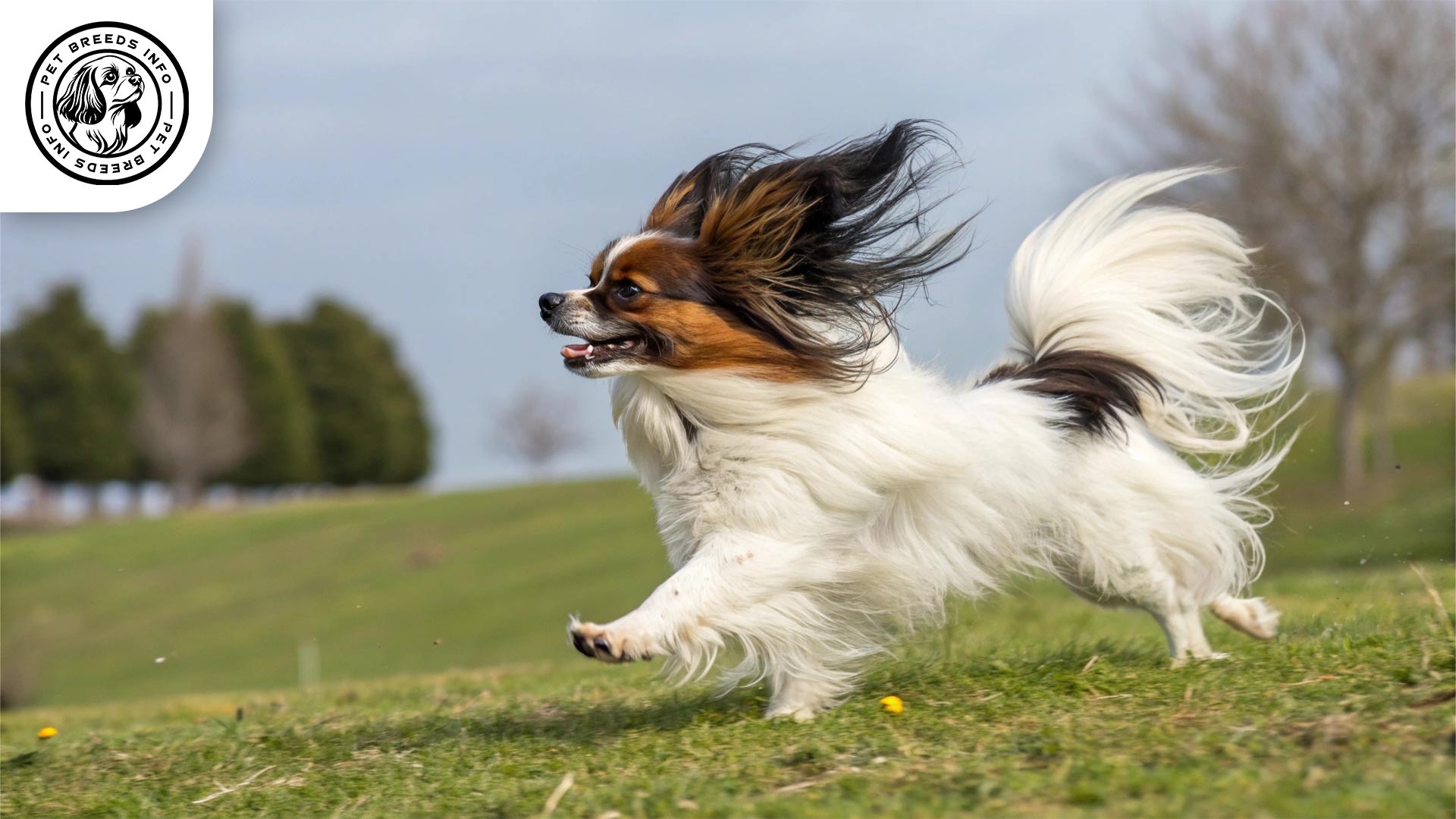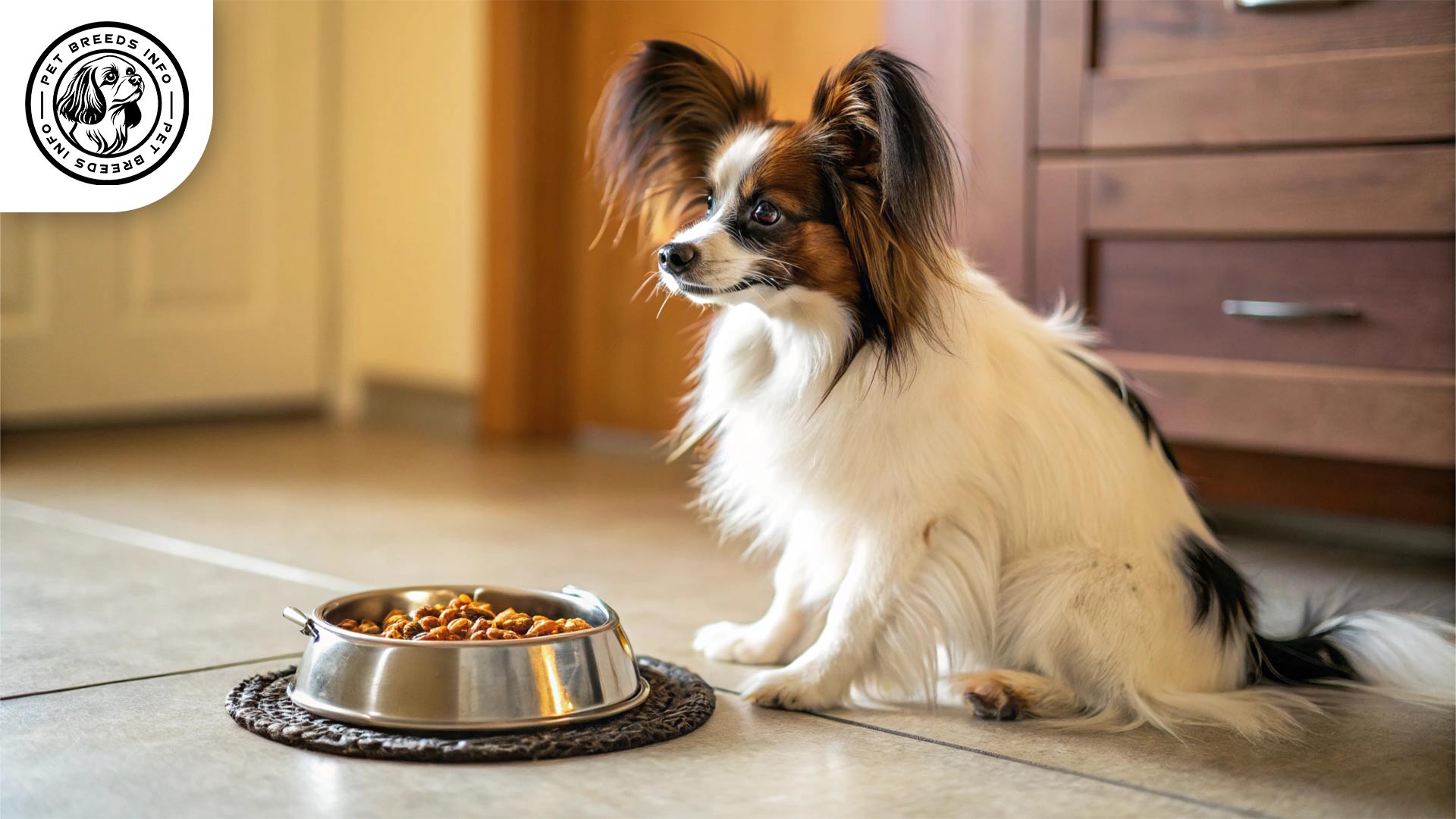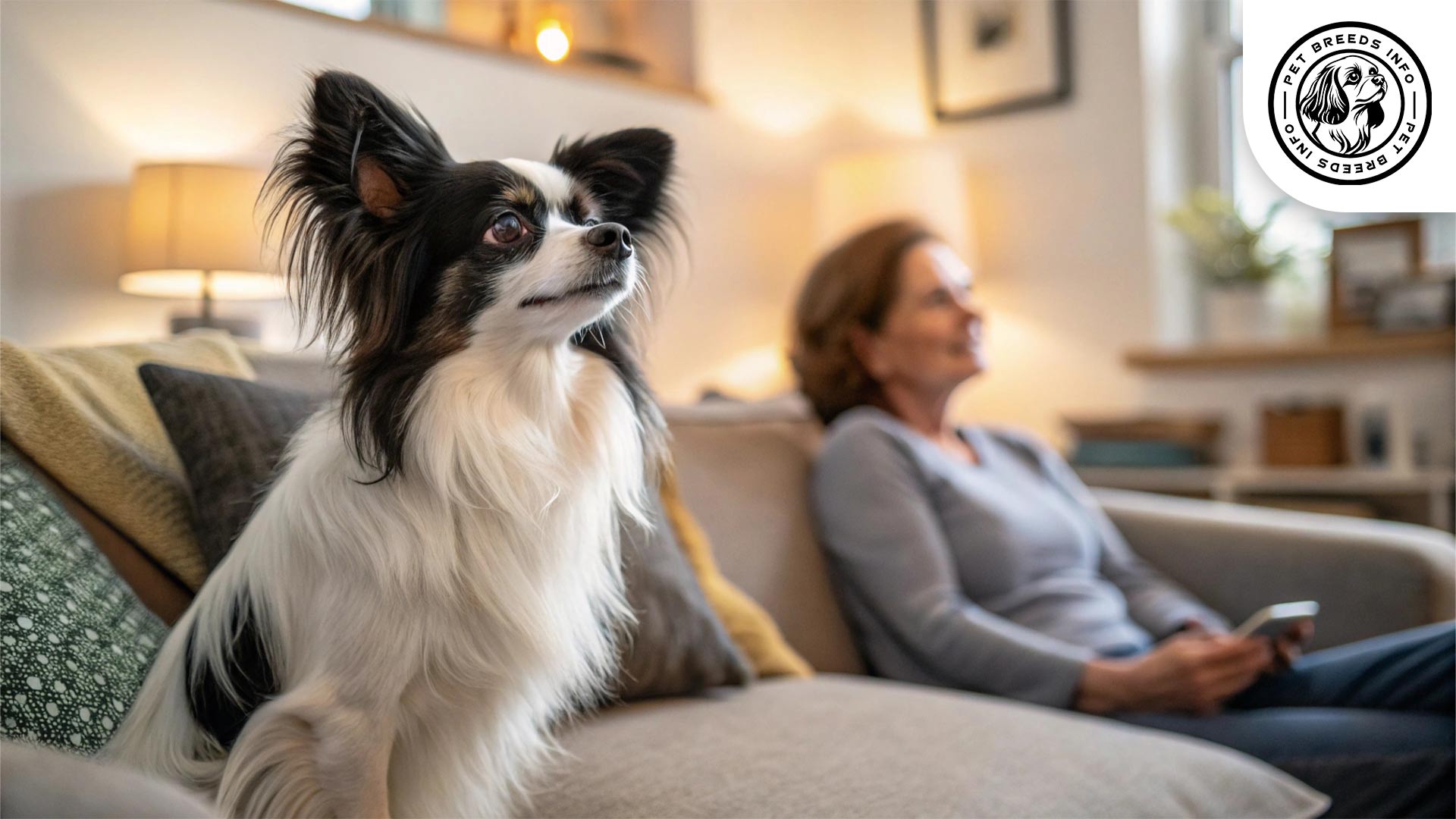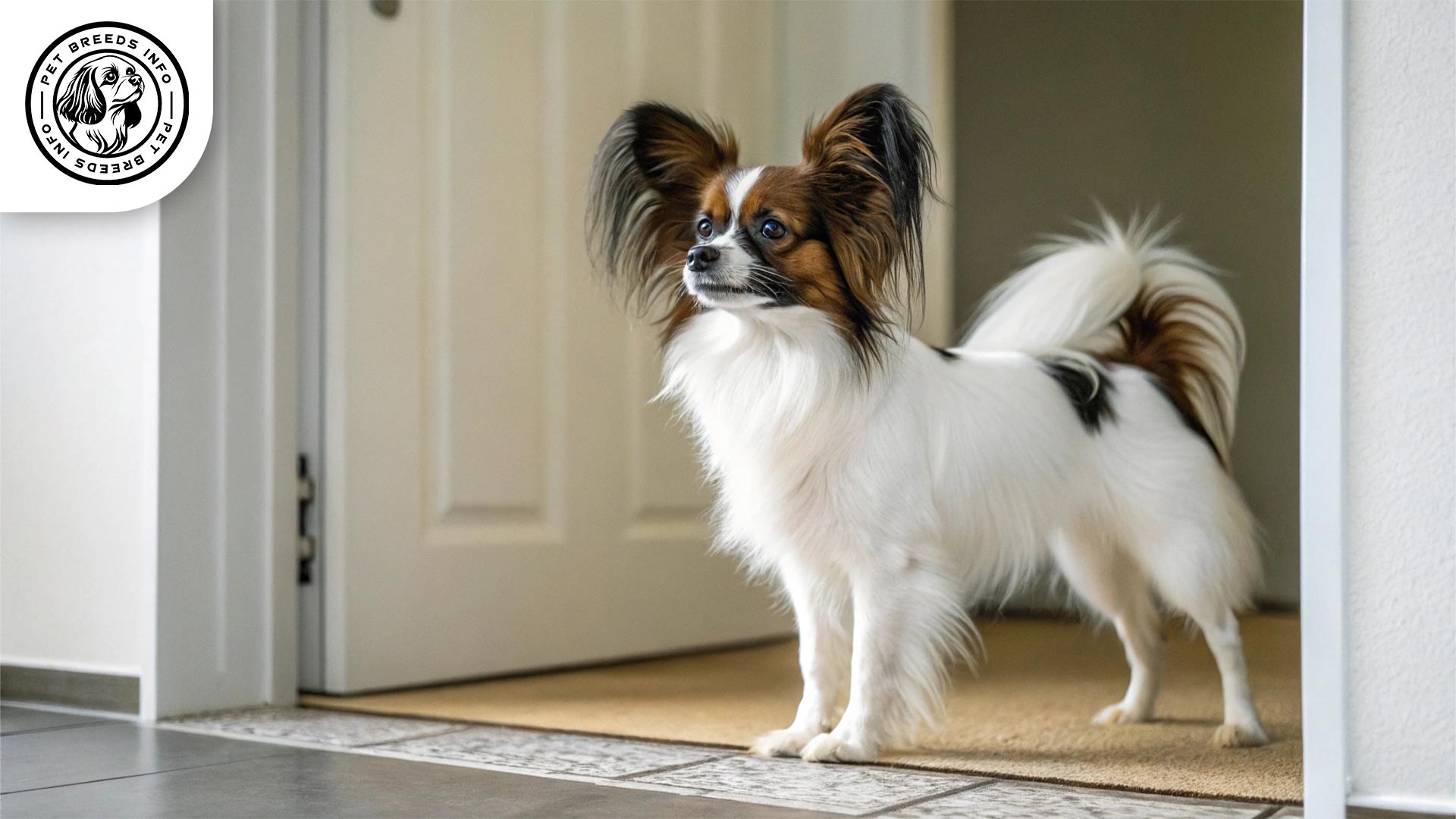Papillon Dog Breed: Size, Health, Price & Personality
General Introduction of the Breed
The Papillon, also known as the Continental Toy Spaniel, is a small yet elegant breed known for its distinctive butterfly-like ears. The name “Papillon” means “butterfly” in French, representing the breed’s unique ear shape.
This breed originated in France and Belgium, with a history dating back several centuries. It was a favorite among European royalty, including Marie Antoinette. Originally bred as a companion dog, the Papillon evolved from early toy spaniels depicted in Renaissance paintings.
Table of Contents
| Weight | 5-10 lbs |
| Lifespan | 12-16 years |
| Diet | High-quality kibble, wet, or raw diet |
| Care | Regular exercise, brushing several times a week, hygiene care |
| Health | Prone to patellar luxation, PRA, dental issues |
| Color | White with black, brown, red, or sable patches |
| Nature | Intelligent, affectionate, social, energetic |
| Price | $1,000 – $3,000 |
Physical Characteristics
The Papillon is a small breed with a height of 8 to 11 inches (20 to 28 cm) and a weight of 5 to 10 pounds (2 to 5 kg) for both males and females.
Their coat is long, silky, and flowing, with feathering on the ears, chest, and legs. Common coat colors include white with patches of black, brown, red, or sable.
Their eyes are round, dark, and expressive, giving them an alert and intelligent appearance.
Their ears are large, well-fringed, and can be either erect or dropped, resembling butterfly wings. Their tail is long, plumed, and carried over the back.
Distinctive features of the Papillon include their delicate bone structure, proud posture, and refined facial expressions.

Personality and Temperament
Papillons are highly intelligent and quick learners, ranking among the most trainable toy breeds. They are known for their agility and enthusiasm for learning tricks.
They have a high energy level and require regular physical and mental stimulation to stay happy and engaged.
They form strong bonds with their owners and can be very affectionate, often following their human companions around the house.
Papillons are friendly, outgoing, and social. They interact well with people, children, and other pets when properly socialized.
They have playful and curious instincts, making them lively companions. Their alert nature also makes them excellent watchdogs.
They can be sensitive to changes in their environment and prefer a stable and loving home.
Care and Maintenance Requirements
Despite their small size, Papillons are energetic and enjoy daily walks, playtime, and mental challenges like puzzle toys.
They adapt well to apartment living but require regular exercise to prevent boredom.
Their coat needs brushing several times a week to prevent tangles and mats, especially around the ears and chest. They are moderate shedders.
They are sensitive to extreme temperatures, particularly cold weather, and may require protection during winter.
Regular hygiene practices such as bathing, nail trimming, ear cleaning, and dental care are essential for their overall health.
Diet and Nutrition
Papillons thrive on high-quality dry kibble, wet food, or a balanced raw diet that meets their nutritional needs.
Read More: Norwich Terrier Dog
They have no specific dietary restrictions, but portion control is essential to prevent obesity.
Foods to avoid include chocolate, onions, grapes, and foods high in fat or sugar.
They should be fed in small portions, typically 2-3 meals per day, depending on their age and activity level.

Health and Common Medical Issues
Papillons are generally healthy but can be prone to certain genetic conditions, including patellar luxation, progressive retinal atrophy (PRA), and dental issues.
They may be sensitive to anesthesia due to their small size.
The average lifespan of a Papillon is around 12 to 16 years.
Routine vaccinations, annual vet check-ups, and preventive care are important for maintaining their health.
Training and Behavior Management
Papillons are highly trainable and eager to please, making them excellent for obedience training, agility sports, and tricks.
Consistency and positive reinforcement methods work best for training them.
Early socialization is recommended to ensure they grow into well-adjusted dogs, especially if they will be around children or other animals.
Housebreaking can take time, so patience and regular potty training routines are necessary.
Read More: Nova Scotia Duck Tolling Retriever Dog
Interaction with Other Animals and Humans
Papillons generally get along well with children, especially older kids who understand how to handle small dogs gently.
They can coexist peacefully with other pets but may exhibit dominant or territorial behavior if not properly socialized.
This breed suits families, singles, and seniors equally well, provided they receive the attention and stimulation they need.
While affectionate, they are somewhat independent and not overly clingy, making them adaptable to different lifestyles.

Price and Availability
The cost of a Papillon puppy can range from $1,000 to $3,000, depending on the breeder, pedigree, and location.
When adopting or purchasing a Papillon, it is essential to choose a reputable breeder or consider rescue organizations and shelters.
Responsible breeders will provide health clearances and proper socialization for their puppies.
Conclusion and Final Thoughts
The Papillon is an excellent breed for those looking for a smart, loving, and energetic companion.
They are best suited to owners who can provide them with mental and physical stimulation, as well as plenty of attention.
Read More: Otterhound Dog
Potential owners should consider their grooming needs, high energy levels, and social nature before choosing this breed.
With proper care, this small but lively breed can be a joyful and affectionate companion for many years.
FAQ
Are Papillons easy to train?
Yes, they are highly intelligent and eager to please, excelling in obedience training and agility.
What health issues are common in Papillons?
They may suffer from patellar luxation, progressive retinal atrophy (PRA), and dental problems.
Do Papillons get along with other pets?
Yes, they generally coexist well with other pets, but early socialization is important.
How long do Papillons live?
With proper care, they typically live between 12 to 16 years.





